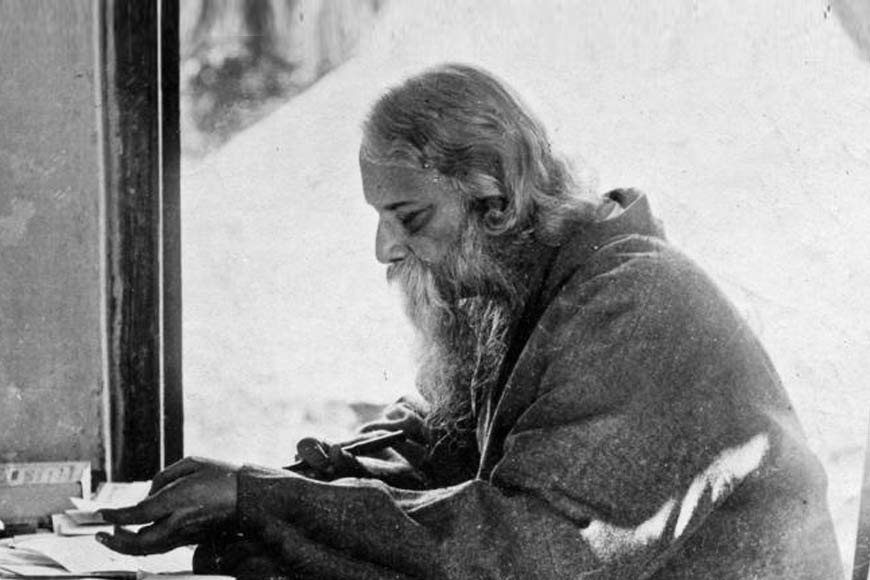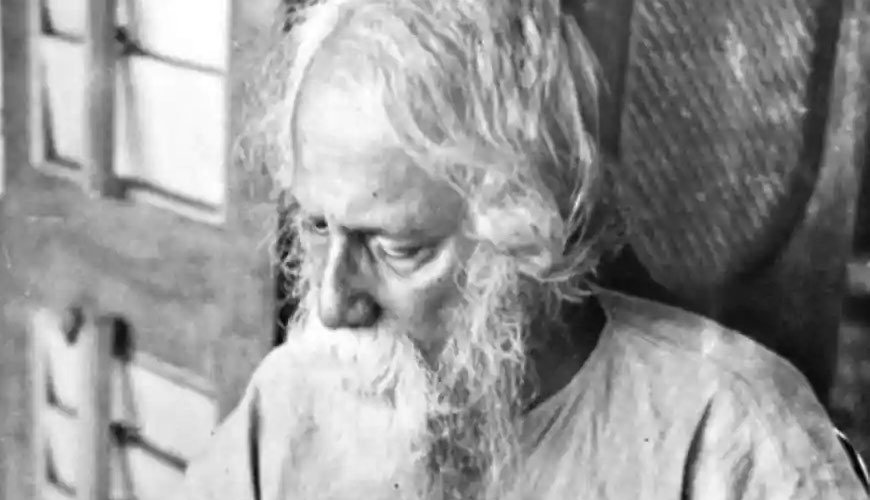Did Russia behave like a fascist? Tagore’s letters reveal the nation’s history of violence

Letters from Russia by Rabindranath Tagore written in 1930 is not just a treasure trove of memories but a detailed explanation of a country’s psyche, a nation that blended socialism with violence and radical ideologies that Tagore felt might not bear fruit in the future. The present war between Russia and Ukraine might have its seeds in that psyche that Rabindranath Tagore so well explained in his letters from Russia. GB carries this series reflecting on why these letters are valuable in the present war-ripped Europe. In this 2nd part, we discuss how Tagore believed Russia’s violent communism was comparable to fascism
“In trying to solve the problem, the Soviets have denied it. Hence there is no end to violence.” Tagore’s letters from Russia have delved into the deep psychological roots of violence unleashed by the Soviet regime. In his thirteenth letter written on October 3, Tagore argued that the Russian political regime of Stalin was not in favor of the individual. He writes: “In erasing the proper line of demarcation between the individual and society Russia behaved not unlike the Fascists.” He witnessed the complete suppression of individual views in the name of collective life. In his 8th letter thus Tagore brings in his famous quote: “This was the shadow side of the moon.”
True to what Tagore wrote almost a century ago, Russia always had been very tough on dissidents and always tried to suppress voices of criticism, just like they are doing even in the 21st century, putting behind bars their own countrymen who are urging the Putin government to stop the Ukraine War. In his letters Tagore makes some remarkable comments: “Communist regime made a strange mistake using a pictorial and cinematographic interpretation of history to show the cruelties of the Czarist Empire, the communist regime ended up adopting a similar ruthless policy.” Tagore’s keen observation helped him to understand the political and moral hypocrisy that somehow fooled the people of the nation.
Tagore writes: “Those who have not the patience to wait for human nature to come to terms with its own time belief in persecution.” He knew through his innumerable interactions with people across the world that human nature cannot be fixed, its sensibilities cannot be changed. He knew even if the “theory is ready, but not men.” He knew violent communism might be good in theory, or as social science, but cannot be imposed on humans by force.

While writing his letters from Russia, a visionary like Tagore realized there was a need to rethink. Else like any revolution, there would be violence and if there is violence it will limit and reduce the entire purpose. Through his letters somehow, he warns Stalin and his regime of this violence that one sees being somehow repeated in Russia’s present-day aggression. However, a dictator like Stalin was irked by Tagore’s revelations in his 13th letter. Stalin reportedly wasn’t pleased by Tagore’s critical remarks about the Soviet regime and Tagore’s interview to the Russian daily, Izvestia, was not published in 1930 under Stalin’s orders. It was finally published in 1988 under Gorbachev’s regime. In his second and fifth letters, he also observed “due to the disappearance of the distinction of [or, based on] wealth, the visage of wealth has undergone a visible change. There is not the unseemliness of poverty, there is mere want. Personal property is the language of individuality.”
The poet was critical of the lack of freedom in the Soviet Union. In an interview with Izvestia newspaper, he said, “I must ask you: do you think fomenting the minds of the people you educate with anger, class hatred, and vengeance in relation to those you consider enemies will be beneficial to your ideals? The freedom of thought enables one to grasp the truth, while fear kills it… Together with all mankind, I hope that you will not call into being the evil spirit of violence and cruelty, which it will then be too late to stop.”
However, Tagore was struck by the scope of the cultural construction in the Soviet Union. “If I hadn’t seen it with my own eyes, I could have never believed that in just ten years they have not only led hundreds of thousands of people out of the darkness of ignorance and degradation and taught them to read and write, but also fostered in them a sense of human dignity. We need to come here specifically to study the organization of education,” Tagore wrote in his letters. For him, this was very important as right then he was deep into using art and literature as the foundation of the new education system at Santiniketan.
Tagore had warned against “the imperfect contact between the wills of the leader and those who are led” in communist Russia. We are once again witnessing such a coercive nature in Russia today. Are Tagore’s warnings coming alive almost a century later?
(To be continued)










